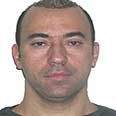
Crime leaders arrested in cocaine smuggling sting
In cooperation with Panamanian authorities, police thwart smuggling of 108 kilograms (238 pounds) of cocaine, hidden inside speakers, into Israel. One of those involved becomes state's witness; 27 suspects arrested
Some 108 kilograms (238 pounds) of cocaine did not make their way to Israel's streets and two murder cases were solved thanks to a joint effort between Panamanian authorities and Israeli Police. Among those involved were crime bosses Amir Mulner and Zeev Rosenstein. The details of the case were cleared for publication on Wednesday night.
The crowning glory of the affair is that 108 kilograms of cocaine were kept from being smuggled into Israel from Panama hidden inside speakers in one of the country's biggest smuggling cases. The smuggling operation, in which top-level crime figures were allegedly involved, was thwarted in a joint operation between the Israeli and Panamanian police during which 27 suspects were arrested.

Speakers used for hiding the cocaine (Photo courtesy of Israel Police)
If this weren't enough, the police also managed to recruit a state's witness who was a vital operative in the smuggling deal. The witness provided critical evidence that led to the arrest of mob boss Zeev Rosenstein for allegedly ordering the triple murder of Rafi Weizman, Sharon Mussai, and David Ben-Margi in 2001. The witness also provided tips that cracked the case of Eyal Sheetrit's murder.
It has been nearly two years since the police have worked on this case, but admitted they weren't aware as to just how far-reaching it is. The investigation started when the interrogation team, headed by Chief Superintendent Eli Assayag, received information about a man named Michel Ben-Simon, who splits his time between France and Morocco, imports drugs to Israel.
'Very difficult to penetrate this group'
The police started following Ben-Simon and discovered that, with the help of his girlfriend and one other person, he is operating a wide, compartmentalized network of drug smuggling to Israel. A short time after the case opened, the police successfully identified his "engineer" – Ran Shevi, a resident of the Sharon region, who was responsible for manufacturing the speakers used to hide the drugs.
"In all my years with the police, I never saw a person as sophisticated and suspicious as Ben-Simon," said Assayag. "It was very difficult for us to penetrate this group."
Ben-Simon was careful not to travel to Israel, making all his transactions abroad. He is also the police's only suspect that the police has yet to apprehend because he escaped to a country that does not have an extradition agreement with Israel.
Tracking devices on packages to Panama
After months of follow up, the police investigators started reap the benefits of their efforts when they noticed that Shevi regularly went to the post office in Hod Hasharon to send pieces of metal to Panama. Prior to this, the investigators understood that most of the operations took place in Panama. Now they had a conclusive evidence for this.
Just after Shevi left the post office, police detectives collected the packages Shevi sought to send and brought them into their station in Ramle. It turned out that the pieces of metal were meant to be installed inside speakers, in essence to keep the drugs from being detected in x-ray.
After placing tracking mechanisms on the packages, they were sent off to their destination in Panama. Once there, the local police started tracing the group of smugglers using the tracking devices. The group rented a large warehouse to assemble to speakers. Concerned that the drugs would be stolen, the group made sure to switch warehouses every few days, emptying and thoroughly cleaning each one before leaving so as not to leave any tracks behind.
In Israel, in the meantime, the police continued to follow two intermediaries, Shimon Azulay and another person who later became a state's witness, in hopes that they would lead the investigators to the drugs' final destination – local criminals who ordered them, or, who the police dubbed, "the investors."
Just before the speakers, which were perfectly functional, were filled with the 108 kilograms and loaded onto 38 platforms before being sent to Israel, the police, together with Panamanian authorities decided to raid the warehouse where they were hiding.
The police estimate that a pure kilogram (2.2 pounds) of cocaine from Panama would cost an Israeli "investor" $6,000 and could be sold in Israel for more than $100,000. Once it hits the market and is mixed with other substances, its value multiplies even more.










